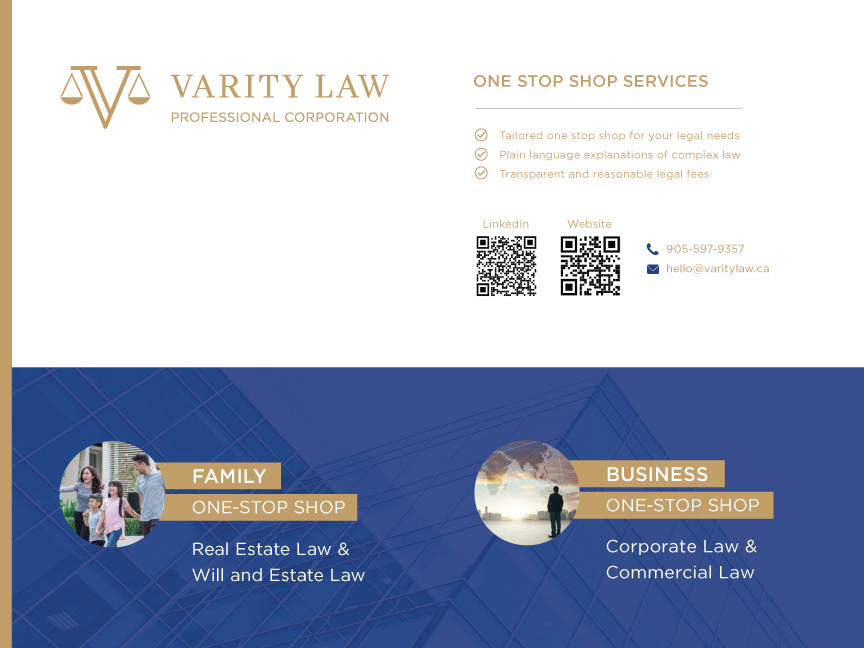When we die, most of our assets will be frozen and will be untouchable without first getting court approval (probate), which can be time-consuming and expensive if you have a complex estate. While most people think their estate is simple unless they have a complicated family filled with drama and fighting, they are often wrong. It really comes down to several factors, like the size of your estate, whether you have a will, how many beneficiaries you have, and their ages. In this post, I will share the differences between simple estate, small estate, and complex estate in estate planning, including potential legal challenges. 
Size of Estate
It isn’t surprising that the size of your estate is a major factor when discussing complexity, but you may be surprised to learn that even a relatively small estate could be considered large and complex. The levels of estate complexity related to size are as follows:
- The total estate value is below $50,000. This is the simplest estate, as it will not require any Estate Administration Tax payments (1.5% of anything over $50,000) and is part of the Court’s faster Small Estate system.
- The total estate value is above $50,000, but is below $150,000, which makes it a “Small Estate”.
- The total estate value is above $150,000 but below $350,000 and there is no will.
- Estates above $350,000 and there is NO will – those types are the most complex estates.
As you can see, even a modest estate of $160,000 would be treated as a large estate
Calculating Estate Value
When calculating the value of your estate, debts do not get deducted from the value, except for mortgages. Additionally, certain assets do not get included with the estate. For example, you would not include the following assets:
- Jointly owned assets, like joint bank accounts
- Any financial product with a designated beneficiary, like an RRSP or a life insurance policy
- Personal effects or assets in a private company (provided you have a Secondary Will)
- Assets in a trust
All other assets are part of the deceased’s estate and need to be included when calculating Estate Administration Taxes. For example, Josephine dies with $100,000 in bank savings in her sole name. She also owns a house jointly with her spouse that is worth $500,000 and has $50,000 in car loans. In this case, her estate subject to probate would only be $100,00, as the property is jointly owned, and the car loans do not reduce the estate value. Based on this, the estate taxes are only $750. If, however, she owned the house in her name only, her estate would be valued at $600,000, which would increase the complexity and the Estate Administration Taxes would go up to $8,250!

Small Estate under $150,000
A small estate is one below $150,000. Because of the smaller size, they are usually approved much faster than larger estates (often in 1-3 months). However, you must be careful, as any assets not listed in the application will not be included on the Small Estate Certificate, which could require an additional probate application for those additional assets. Even worse, if the newly discovered assets make the estate greater than $150,000, you would need to do a full probate application, which can be more expensive and take much longer.
For example, Josephine dies with a Bank of Montreal account holding $130,000 and a TD account with $100,000. Unfortunately, Josephine did not leave a list of her assets (something we offer with all of our wills at no additional cost). Since there was no list of assets, her estate trustee, James, was unaware of the TD account. After applying for probate and getting approved, James was able to manage the $130,000 BMO Account.
Then, James discovers the $100,000 TD account. Not only is James prohibited from touching any of the TD assets, but he would also need to reapply for probate through the more complex process for larger estates over $150,000.
Estates Above $150,000
Estates above $150,000 must go through a full probate review, but, if you have a Will, it will be much simpler, faster and cheaper. The reason for this is simple: if there is a Will, the assets go to the person listed in the Will. The Court is not worried that there are unknown beneficiaries who would be left out.
For instance, let’s say the Will stated that all of the deceased’s assets would go to his spouse. The Court doesn’t need to do an investigation to see whether the deceased had any children or who are his next of kin. The Court can just rely on the Will, which stated the only beneficiary is his wife. No one else is entitled to the inheritance.
In contrast, if there is no Will and the total estate is over $150,000, the review period can often take over a year. During this time, the estate is frozen, and nobody can use the assets. Why does it take so long? Because, in the absence of a Will, the deceased’s estate would be distributed according to legislation instead. So the entitled beneficiaries could include the deceased’s spouse, children, parents, or other next of kin.
Let’s take a simple example. Let’s say the deceased has one spouse and one child. When his spouse applies to Court to receive their inheritance, the Court may be worried that there are unknown beneficiaries who are also entitled to the deceased’s estate. What if the deceased had another child in another country that the Court doesn’t know about? If the Court allows the spouse and the child to take all the inheritance, what happens if that child comes forward later, legitimately demanding his share of the inheritance?
Whenever there is a risk for unknown beneficiaries, the Court will likely require a bond insurance policy, which can cost 5% of the entire estate. The spouse applying to manage the estate (aka to become the estate trustee) must use her own funds to purchase the bond insurance policy, and only then would the Court allow her to manage the inheritance. This is another big reason why everyone should have a Will that clearly identifies the beneficiaries and has a bond exemption clause (for more information on bond insurance, please see here: https://varitylaw.ca/2022/08/29/probate-when-the-court-requires-bond/ )

Estates Below $350,000 without a will
Without a will, the first $350,000 of an estate goes to the married spouse (this does not apply to unmarried, common-law couple). Anything beyond $350,000 is divided between the spouse and any children. This rule can either simplify things or make them much worse.
If the estate is below $350,000 AND there is a spouse, then the spouse is the only beneficiary. He/she would receive the entire estate. The other eligible beneficiaries, such as the deceased’s children, would get nothing. Nevertheless, this does make the probate application simpler and faster.
If the estate is above $350,000 and there are children, things can get much more complicated and expensive if there is no will.
Estates Above $350,000 without a will
While $350,000 is a relatively modest estate size, as most real estate properties in Ontario are worth more than that, the Court treats this as a large and complex estate. As noted above, estates above $350,000 (without a Will) are divided amongst the spouse and any children. When this happens, the court will require the children’s consent to approve the spouse as the Estate Trustee. Unfortunately, getting consent is not always easy, like when there are children from a previous marriage.
For example, if the deceased passes away with a child from a previous marriage and a new spouse, things could get complicated. The new spouse will want to be the estate trustee, but the court will require the child’s (from previous marriage) consent since he is a beneficiary. If the spouse cannot get the child’s consent, the court may require a bond policy, which can be as much as 5% of the value of the estate.
Additionally, if there is no Will and the estate is higher than $350,000 – then the deceased’s children must be beneficiaries. To make things more complicated, if the children are under the age of 18, they cannot give up their right to heritance. This makes for a very complicated situation and application, which we will discuss in our next blog.

Do you have a Valid Will
Another factor related to the complexity of your estate is whether your Will is valid. If the Court determines that it is not valid, then it’s as if you had no Will.
For a Will to be valid, there are 8 key requirements. Feel free to book a 1st free consultation with us to learn more. As we mentioned before, if there is a will, estate distribution is typically much easier and cheaper.
Additionally, just having a Will that is “legal” is not enough. Let’s show this with an example. If the deceased’s Will does not state who the beneficiary is and instead leaves the estate to “her children”, then it creates a situation similar to as if she had no Will. The Court would need to ascertain who are her children, resulting in longer wait time and possibly bond insurance.
Conclusion
Whether you have a simple estate or not comes down to several factors, not just how complicated your family is.
An estate valued below $50,000 will be the simplest in most cases, as it uses the Small Estate process and incurs no Estate Administration Taxes, while an estate between $50,000 and $150,000 is the next simplest. Estates in this range pay taxes, but they still get to benefit from the Small Estates process. After that, you would have estates with a Will and then estates below $350,000 with no Will, but with a legally married spouse. Estates above $350,000 with no Will are the most complex.
However, it is important to be aware that, no matter how much the estate is worth, a valid Will can simplify the process and will almost always result in a faster and less expensive approval. That is why we encourage all our clients and friends to get their Will done before it is too late. Read more articles on Wills and Estates Law.
To book a free consultation, please use this link to make an appointment with us: https://calendly.com/sabrina-668/1stfreeconsult







